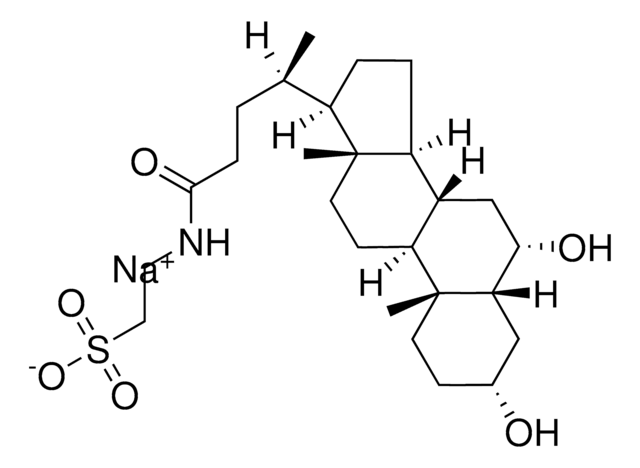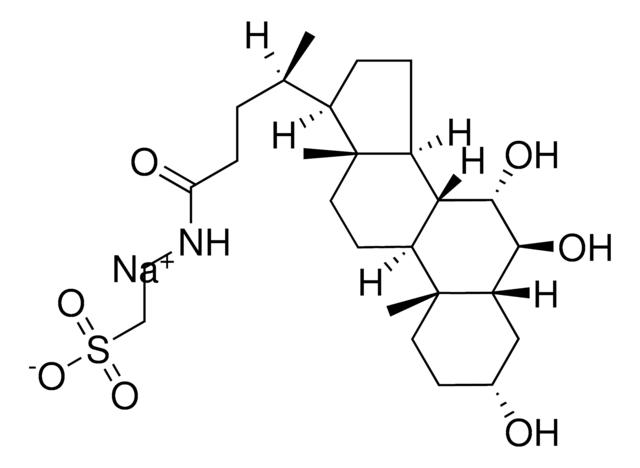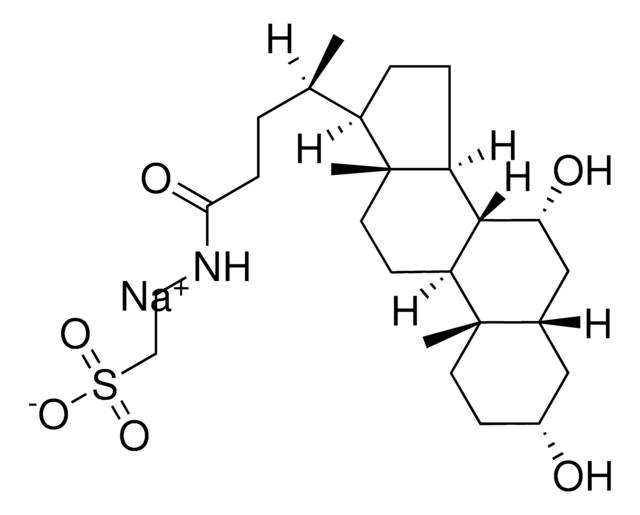T0682
Sodium taurohyodeoxycholate hydrate
≥98%
Synonym(s):
Taurohyodeoxycholic acid sodium salt hydrate
About This Item
Recommended Products
description
anionic
Quality Level
Assay
≥98%
mol wt
521.69 g/mol (anhydrous basis)
application(s)
detection
SMILES string
O.[Na+].C[C@H](CCC(=O)NCCS([O-])(=O)=O)[C@H]1CC[C@H]2[C@@H]3C[C@H](O)[C@@H]4C[C@H](O)CC[C@]4(C)[C@H]3CC[C@]12C
InChI
1S/C26H45NO6S.Na.H2O/c1-16(4-7-24(30)27-12-13-34(31,32)33)19-5-6-20-18-15-23(29)22-14-17(28)8-10-26(22,3)21(18)9-11-25(19,20)2;;/h16-23,28-29H,4-15H2,1-3H3,(H,27,30)(H,31,32,33);;1H2/q;+1;/p-1/t16-,17-,18+,19-,20+,21+,22+,23+,25-,26-;;/m1../s1
InChI key
MJKUJELEPWZEGU-IGEKTTBWSA-M
Related Categories
General description
Application
Storage Class Code
11 - Combustible Solids
WGK
WGK 3
Flash Point(F)
Not applicable
Flash Point(C)
Not applicable
Certificates of Analysis (COA)
Search for Certificates of Analysis (COA) by entering the products Lot/Batch Number. Lot and Batch Numbers can be found on a product’s label following the words ‘Lot’ or ‘Batch’.
Already Own This Product?
Find documentation for the products that you have recently purchased in the Document Library.
Customers Also Viewed
Our team of scientists has experience in all areas of research including Life Science, Material Science, Chemical Synthesis, Chromatography, Analytical and many others.
Contact Technical Service












